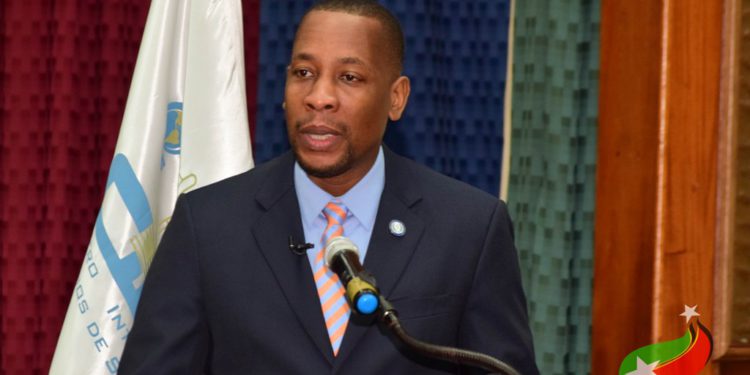Basseterre, St. Kitts, March 26, 2019 (SKNIS): Promoting healthy aging within the region will require an all hands on deck approach according to officials attending a course-workshop titled “Building Workforce Capacity to Promote Healthy Aging and Limit Non-Communicable Disease (NCD) related Harm” at the Sir Cecil Jacob Auditorium at the Eastern Caribbean Central Bank (ECCB).
“The time is right for us to build significant partnerships. It can no longer be business as usual for us – the centre, the bank, the conference and all the requisite important institutions in the region – must now come together to formulate action plans and concrete proposals that will see us addressing challenges. We may not have 100 percent solutions, but we can impact the current reality,” said Reginald Thomas, Director of the Inter-American Center for Social Security Studies (CIESS).
Mr. Thomas said that for the region to move forward officials must be on the same page.
“I think what is needed now as we go forward is for us to have strong linkages, strong partnerships to impact public policy so that the changes that are required for us to survive would be made,” he added. “The governor [of ECCB] would have no money to manage if the productive capacity in our economies continue to decline and if they not only decline but are significantly impacted by low participation levels and low labour force consistencies and compositions.”
Timothy Antoine, Governor of ECCB, shared similar sentiments and noted that as the workshop progresses and the issue of healthy aging is discussed it is important “to get models that we can emulate”, hence the importance of partnerships.
“As small countries we are well capable of coming together and crafting arrangements that work for us. We are well capable of doing for ourselves what we must with or without partnerships, but now in this day and age we have to do it with partnerships,” he said. “I make the point that we can do a lot together and I stressed this in the context of the issues we are dealing with this week, the issues of healthy aging and NCDs, those are weighty issues.”
Governor Antoine added that the idea of establishing national health insurance programmes in the region is laudable but expensive. He touched briefly on countries such as Turks and Caicos Islands and Tortola that have already successfully established their programmes.
“…and we are going to have to learn from them and make sure that we avoid policy errors and mistakes and make the right decisions, but also recognize that we have to come together to do this work. This work is too important and too challenging for us to take it on our own,” he said. “Notwithstanding our heroic efforts in country, they will always fall short because many of the problems that we are dealing with in this region require a regional response and collective action.”
The governor encouraged participants and all stakeholders involved to use the week to network and ensure that relationships are established to learn and expand what is already happening and has happened in the region with respect to national health insurance.
The workshop runs from March 25-29 and is organized by CIESS in conjunction with The New York University (NYU) Meyers and the St. Christopher and Nevis Social Security Board. It is aimed at understanding the differences between elderly health status and welfare in order to contribute to social policy design, the design of future health services and needs for social assistance systems, to guarantee the older population an adequate material and health status.









